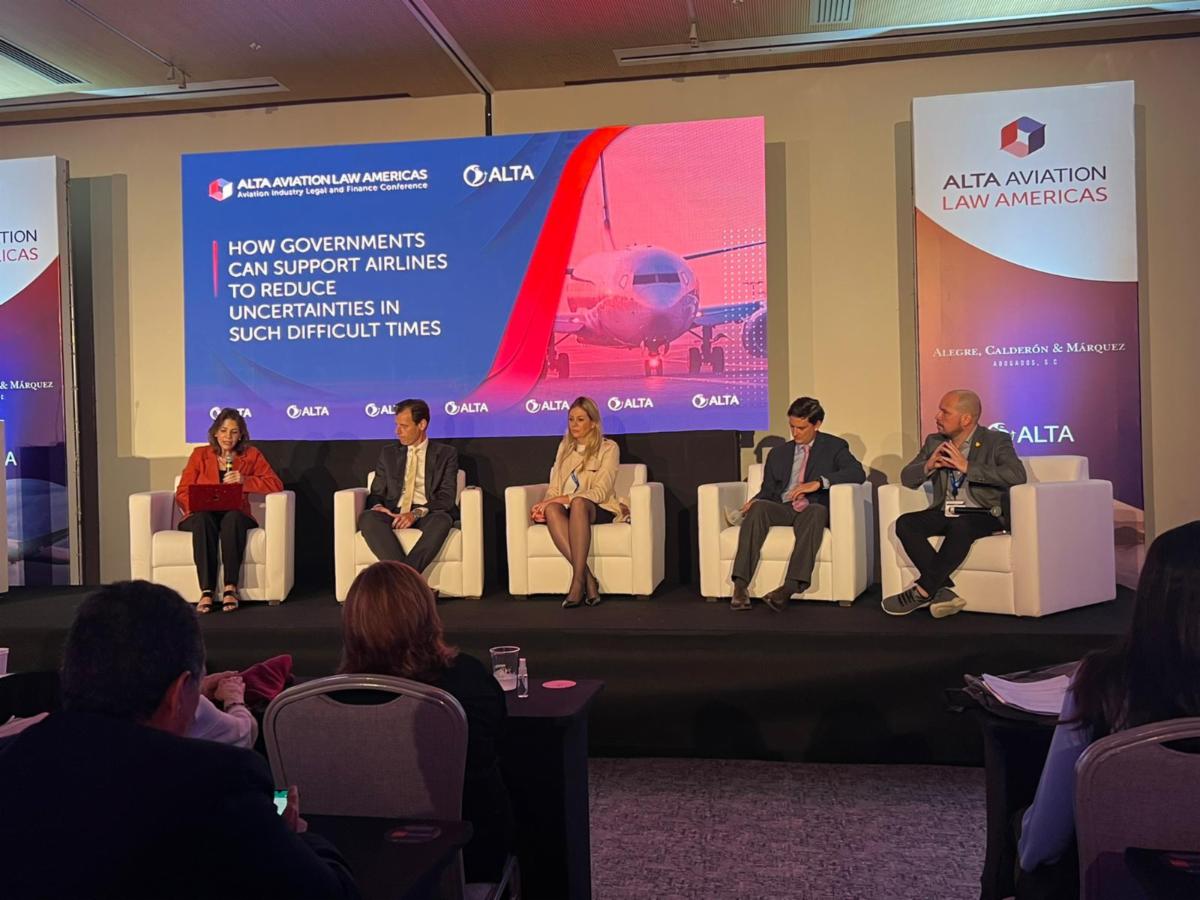Source: ALTA
- The Latin American and Caribbean region has experienced a significant recovery in the number of air passengers after the hiatus caused by the pandemic. However, the international context continues to pose considerable challenges, such as war-related fuel price increases, inflation, exchange rate volatility and the risk of recession by 2023. At this juncture, how can governments and the airline industry work together to reduce the current uncertainty?
The Latin American and Caribbean region has experienced a significant recovery in the number of air passengers after the hiatus caused by the pandemic. However, the international context continues to pose considerable challenges, such as war-related fuel price increases, inflation, exchange rate volatility and the risk of recession by 2023. At this juncture, how can governments and the airline industry work together to reduce the current uncertainty?
A panel discussion at ALTA Aviation Law Americas 2022 sought to answer this question. The dialogue featured panelists Mauricio Sana, CEO of Flybondi; Ronei Glanzmann, Secretary of Civil Aviation of Brazil; Alejandro Muñoz, Deputy Director of Membership and External Relations, Latin America and the Caribbean, IATA; and Renata Fonseca, Chief Legal Officer of Gol. Viviana Martín, Director of Avianca Government Relations and General Manager of Avianca Costa Rica, served as moderator.
In July 2022, Latin America and the Caribbean reached 90.5% of its 2019 passenger traffic levels, according to data from the Latin American and Caribbean Air Transport Association (ALTA), highlighting that the recovery has been faster in countries that have lifted international travel restrictions more quickly, such as the Dominican Republic, Colombia and Mexico, markets that have even surpassed their pre-pandemic year figures by 16%, 9% and 6%, respectively.
“The contrast reflected in the number of passengers carried in each country demonstrates that efficient, smart, predictable and harmonized rules drive air travel, provide security for operators and confidence for users to make use of this essential mode of transport. In the midst of challenges especially related to operating costs, we need to work with governments to generate certainties so that the industry can transfer these efficiencies to users,” commented José Ricardo Botelho, executive director of ALTA.
Taxation is another area where governments can contribute to the airline industry. Increased taxes and fares have a direct impact on the final price of tickets, which discourages the use of air transport and the influx of travelers. However, previous experiences in countries such as Colombia and Chile demonstrate with facts that a reduction in taxes stimulates travel and, with it, a wide economic value chain that generates jobs, development and opportunities for destinations receiving travelers.
Viviana Martin highlighted that while some consequences of the pandemic have been overcome, there are still challenges especially in terms of the impact of the War on oil prices, inflation, exchange rates in the region and the large global debt that by 2020 alone reached 265% of global GDP. “The industry has significant growth potential, but collaboration between the public and private sectors is necessary to address critical issues that allow companies to survive. The fiscal issue is fundamental and has a direct impact on the prices paid by passengers”.
In Colombia, for example, VAT on tickets was reduced from 19% to 5%. This reduction, in effect until December 31, 2022, has had a highly positive impact on the growth in passenger numbers, which in the accumulated period from January to July 2022 has had a growth of 16% vs. 2019. Contrary to fees and taxes, ticket fares have tended to reduce over time thanks to an effort by operators to pass on their efficiencies to the user through more efficient technologies and operations. According to estimates made by ALTA, average fares were reduced by 44% between 2011 and 2019.
Mauricio Sana stated that “You may think that aviation is tourism, but air transportation goes beyond that. In Argentina, for example, Flybondi transports entrepreneurs and SMEs between provinces, generating business, jobs and opportunities that are not only related to tourism. Passengers at airports generate investment and new business. Therefore, the revision of regulations and especially tax issues are fundamental to generate incentives and more demand. Today the company transports twice as many passengers as in 2019, we have 7 times the number of aircraft and we will continue to grow in fleet in the coming months. The work of driving smart and modern regulations is key.”
Ronei Glanzmann commented that the crisis brings opportunities, as an example of which “the 97% reduction in passenger traffic was used to make investments in Congonhas and Santos Dumont airports, for example, which are congested and which in full operation we would not have been able to intervene”. The secretary also shared that Brazil has the lowest airport taxes in the world and they are still working to lower taxes on some fees. “As of January 1, 2023, Guarulhos and RIOgaleão airports will have a 36% reduction in taxes on airport charges; which will help users have better overall fares.”
Muñoz from IATA emphasized that “we must continue to work together with governments to improve the sector’s regulations and, more than that, to improve the processes for issuing standards, so that they respond to the real needs of the industry and consumers. Therefore, IATA’s Smarter Regulation principle can be very useful to generate the necessary synergies and support the growth of connectivity and the benefits of aviation in the economies of the countries in our region”.

